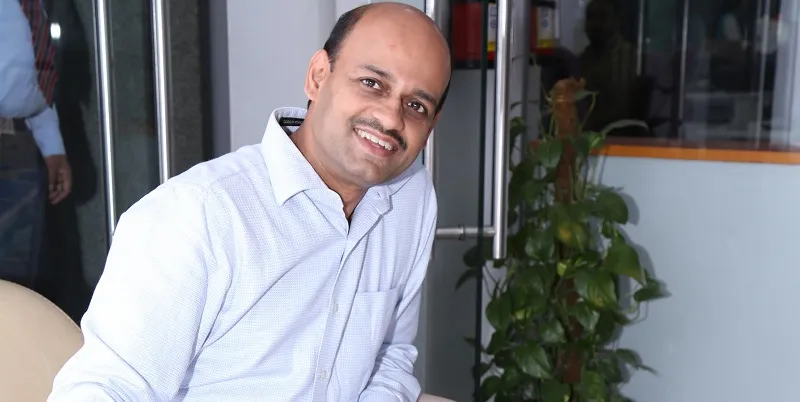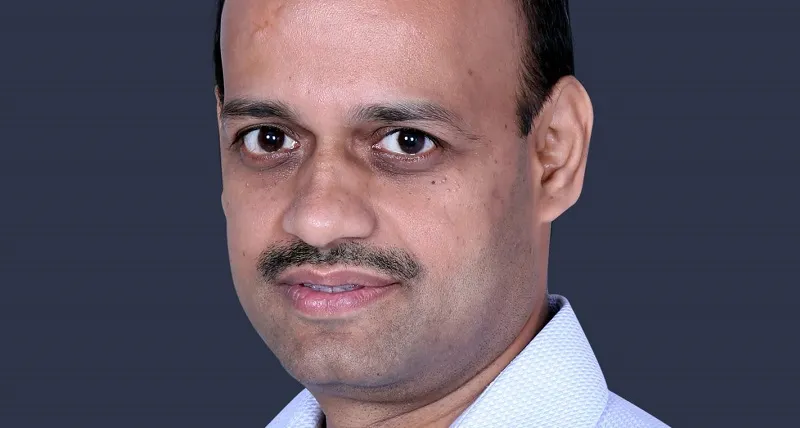Why making Pedigree a household name was central to MARS Petcare’s India plan
Ganesh Ramani, General Manager – Petcare at Mars International India Ltd, tells YourStory about the Pedigree journey: the initial phase, the challenges the company faced, and how a focus on creating awareness helped build their brand in a country still learning about pet nutrition and care.
Pet food in India is synonymous with Pedigree. The brand is owned by Mars Inc, based in McLean, a US-based private company. The company has seen significant growth over the last few years. Mars International India Ltd has a play in food, pet-food, chocolate and confectionary, and sources say that the combined revenues of all its brands (including Pedigree) is more than Rs 500 crore in 2020.
And since then, it’s come to mean good health and wagging tails.
Ganesh Ramani, General Manager of PetCare at Mars International India Ltd, says the journey has been long and tough, but totally worth it. Since its launch in India from one outlet in 2007, Pedigree has grown its presence significantly – it is now available in 70,000-80,000 outlets across the country.
“Around 7,000 outlets are specialty pet stores and veterinary clinics; the others comprise larger chains, supermarkets, standalone stores, general stores, and even pharmacies,” Ganesh says.
A report by market research company Euromonitor International pegs the Indian pet care market at around $347 million and projects a 17 percent growth for this industry until 2024. The pet food market – estimated to be less than Rs 2,300 crore - is poised to grow to Rs 7,000 crore in seven years.
India is the fastest-growing petcare market in the world with urbanisation, rise in nuclear families, and changing perceptions towards pets and pet ownership driving growth. Reason enough for Mars Petcare to target one crore pets that are officially kept in Indian homes.
Ganesh, who has been with MARS Petcare for eight years, tells YourStory about the initial phase, the challenges the company faced, and how a focus on creating awareness helped build their brand.

Ganesh Ramani
Edited excerpts from the interview:
YourStory (YS): Tell us about MARS Petcare’s beginnings in India?
Ganesh Ramani (GR): Mars Petcare entered India in the early 2000s by importing the product on a very small scale. It started with a pilot plant in Hyderabad and later set up a manufacturing unit in the same city in 2007. Here, we make dry food for dogs; all other products continue to be imported. We have taken it upon ourselves to educate consumers, pet parents, and the trade on pet nutrition, and helping the category evolve. We are proud of what we have achieved in India with all the challenges.
YS: What kind of challenges did the company face?
GR: Awareness about pet food is low in India. A decade ago, people had their own myths and understanding about pet food. We had our work cut out for us: to help consumers and the industry unlearn and learn best practices in pet nutrition and pet care. A pet requires different kind of nutrition as compared to humans, and manufactured pet food (MPF) offers this balanced nutrition as against home-cooked food.
The retail sector is very fragmented and as a brand, even at our scale, it is still a challenge to have a presence at all places that are convenient for pet parents. This is why we focus distribution to certain cities and particular outlets. The boom in ecommerce has helped bridge the gap in physical distribution.
YS: Has MARS Petcare established its own D2C?
GR: As a company, we are registered in India, and an Indian entity is allowed to set up a D2C platform. But, since we import a number of products, we will be running the platform with a partner. Our D2C platform is in the pilot phase. We have a significant presence in ecommerce, which contributes to 15-17 percent of our business as compared to most FMCG companies, which record 3-4 percent.
YS: What is the average basket size in India for pet food?
GR: On ecommerce portals, transactions are higher and average basket size is Rs 700-800. This is not the same as monthly spends. There are still many people who do not depend on MPF; they use it as a snack/supplement combined with homecooked food. On the other hand, there are people who rely completely on MPF for their pet’s nutrition.
YS: What are the steps you took to build your brand in India?
GR: A significant part of our brand building has been educating the retail trade and pet parents about the product and its benefits. This is a process that needs to be in tandem with distribution; without education the product will simply lie on the shelf and vice versa.
Our branding philosophy is rooted in our principle of freedom. As a company, we don’t look at spending money on promotions thoughtlessly. When we entered the country, we started by making our presence felt at specialty pet stops or veterinary clinics to educate pet parents about different nutritional needs and how home-cooked food did not provide all of them. As more consumers started buying, we made our products available at supermarkets and stores.
YS: Why must pet parents know about the calorie programme?
GR: From very early on, we launched an intensive calorie programme. We involved promoters to tell walk-in customers about pet nutrition. We followed this up with a coupon for them to make a purchase. We started scaling up market reach by advertising on TV and in print.
The idea was to start building awareness and work towards product penetration, and we did a lot between 2008 and 2014. By that time, Pedigree was almost synonymous with dog food. In that phase, we built a lot of brand awareness. People may not have known why they should buy it, but they knew there was a dog food called Pedigree.
From there, we made a bit of a switch–we started pushing the reason to believe and buy. We started our campaign on the five signs of good health, reiterating the benefits of switching to pet food. We also moved from TV to digital. Today, we are more focused on digital media.

Ganesh Ramani
YS: How difficult is the market to capture in India?
GR: India has about 300 million urban households, and 10 percent of urban Indians have pets. We are advertising on TV, but at certain times in the year. It’s the same on print.
But from 2015 onwards, we went digital. This meant we could focus a lot more on people with an affinity towards pets. And then, we were also talking about a reason to believe, the five signs of good health, and more. We can connect with the community on digital channels. People who have said they are dog lovers or cat lovers watch pet-related videos. You can target them very specifically, which makes it more effective.
We started building our presence in supermarkets and general stores. In specialty stores, typically a non-pet owner is not likely to see the brand. But today, even if you don’t have a pet, you are likely to see the brand in a supermarket. This goes back to our journey, which began with creating awareness.
YS: Were there any other challenges?
GR: It’s been quite a journey. I recall that it was difficult to go to outlets and convince retailers to stock the product. In fact, we did face a lot of resistance in the initial phase in cities like even Mumbai, where store owners – mainly Gujaratis or Jains – would refuse to stock non-vegetarian products. We would often say: “Look, you have Maggi, which has non-vegetarian too.”
Apart from the resistance, the shop or the category person in the trade gives you only so much mind space when you are a small brand. But what we did is invest in a few of the stores, paying for premium positioning. That helped. And once you are established, you build on it.
Edited by Teja Lele








